Definition
Hives are medically known as urticaria, it appears on any part of the skin. It causes itchy welts from small to big blotches for various inched in diameter. It is caused by some allergic reactions. It is formed by the responsibilities of histamine that causes tissues to swell and itchy red rashes. The histamine and fluids from the capillary will accumulate in the skin and causes itching, swelling and rashes.
Epidemiology
Approximately 15% of people experience urticaria at some time in their lives. Acute urticaria is much more common than chronic urticaria. (Estimated lifetime incidence is 1 in 6 people compared to 1 in 1,000.) The prevalence rate for chronic urticaria has been estimated as 1-5 per 1,000. Acute urticaria is most common in children and is more common in women than in men, particularly in the 30-60 age range. It is more common in individuals who have atopy.
Types
There are main two types of hives such as:
Acute utricaria: The symptoms will last less than six or eight weeks.
Chronic utricaria: In rare cases it last for a long period of time more than six to eight weeks, sometimes the rashes comes and goes for over many years.
Based on the cause, doctors classify hives into different types:
Solar utricaria: It is caused by exposure into the sun
Physical utricaria: It is affected by heat, sun exposure, vibration, exercise, cold and pressure to the skin. This type of hives may only be found where the skin was affected can appear within an hour of the exposure.
Dermatographic urticaria: It is caused after firm stroking or scratching of the
Cholinergic urticaria: It is caused by increased body temperature, stress, exercise and having baths.
Urticaria pigmentosa: It causes red or brown swelling or markings and it will mostly affect children
Autoimmune urticaria: Some of the autoimmune conditions such as lupus or rheumatoid arthritis are linked to hives.
Urticaria vasculitis: In this type of hive the blood vessels got inflamed under the skin.
Idiopathic urticaria: Stress may be a trigger, But No obvious cause found.
Hereditary angioedema: This is painful swelling of tissue. It is passed on through families.
Risk factors of Hives
Some of the increased risk factors of acute and chronic hives are as follows:
- Existing or newly developed allergies
- Patient history of hives
- A family history of hives
- The disorders that associated with hives are urinary tract infection, strep throat, hepatitis, rheumatoid arthritis, or type 1 diabetes
- Common viral infections
- Medications such as allergic and non-allergic mechanisms, including codeine, aspirin, morphine, and NSAIDs
- Current skin sensitivities or dermatitis such as inflammation of the skin
- Sensitivities due to disinfectants, dyes chemicals and perfumes.
- Emotional triggers (associated with stress and anxiety)
Causes
Foods: Foods that causing side effects in people with sensitivities such as shellfish, fish, peanuts, tree nuts, eggs and milk are frequent offenders.
Common allergens: Allergens that cause hives such as pollen, animal dander, latex and insect stings.
Environmental factors: Heat, cold, sunlight, water, pressure on the skin, emotional stress and exercise.
Medications: Mostly any medications cause hives. Some of the prevalent medications such as aspirin, ibuprofen (Advil, Motrin IB, others), naproxen (Aleve) and blood pressure medications.
Basic medical conditions: Hives also hardly occurs in response to blood transfusions, immune system disorders such as lupus, some types of cancer such as lymphoma, certain thyroid conditions, and infections with bacteria or viruses such as hepatitis, HIV, cytomegalovirus, and Epstein-Barr virus.
Histamine release: Histamine is a chemical released from specialized cells along the skin’s blood vessels.
Histamine release causes hives
Causes of hives
Symptoms of Hives
Symptoms of hives include:
- Increased red rash
- Swelling of surrounding tissue
- Pain in the inflamed area
- Itching and burning of skin
Rashes on skin
Diagnosis and test
Urticaria is often diagnosed by looking at the skin. Finding the cause of the hives is challenging. To find the cause of the hives, your doctor may do a physical examination and to review your health history. Some of the diagnosing tests include as follows:
- Allergy test on skin or in the blood
- Skin biopsy
- Blood work ( to rule out an illness or infection)
Skin biopsy is done by removing a small piece of your affected skin and it can be examined under microscope.
Treatment and medications
If symptoms are mild treatment is not needed. In many cases of urticaria it cures by its own. But treatment can relief some intense of serious discomfort.
Medications:
Medications for hives include:
Anti-itch drugs: The anti-itch drugs such as antihistamines that reduces itching swelling and other allergy symptoms. some of the antihistamine drugs are as follows.
- Oratadine [Claritin]
- Fexofenadine [Allegra]
- Cetirizine [Zyrtec]
- Diphenhydramine [Benadryl]
- Hydroxyzine [Vistaril]
- Chlorpheniramine [Chlor-Trimeton]
Anti-inflammatory drugs: For severe hives, doctors may prescribe an oral corticosteroid drug such as prednisone to reduce swelling, redness and itching.
Drugs that reduce pain and swelling: Chronic hives and angioedema may be treated with a type of nonsteroidal, anti-inflammatory medication called leukotriene antagonists.
Drugs that suppress the immune system: If antihistamines and corticosteroids are ineffective, your doctor might prescribe a drug capable of calming an overactive immune system. Prednisone is a corticosteroid, helps to relieve swelling, redness, and itching, and also can prevent hives from coming back.
Prevention of Hives
Simple habits changes to your lifestyle may be able to help you prevent hives from reoccurring in the future.
- If you have allergies and you know which substances are likely to cause an allergic reaction, your doctor will suggest that you avoid any possible exposure to these factors.
- Allergy shots are another option that may help you reduce the risk of experiencing hives again.
- Avoid being in high-humidity areas or wearing tight clothing if you have recently had a hives outbreak.
 Diseases Treatments Dictionary This is complete solution to read all diseases treatments Which covers Prevention, Causes, Symptoms, Medical Terms, Drugs, Prescription, Natural Remedies with cures and Treatments. Most of the common diseases were listed in names, split with categories.
Diseases Treatments Dictionary This is complete solution to read all diseases treatments Which covers Prevention, Causes, Symptoms, Medical Terms, Drugs, Prescription, Natural Remedies with cures and Treatments. Most of the common diseases were listed in names, split with categories.
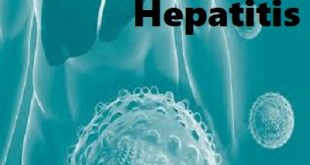
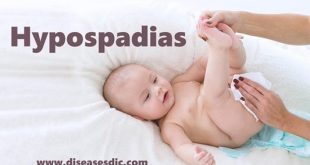

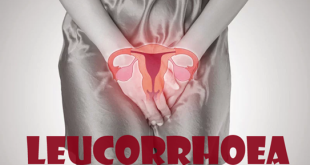
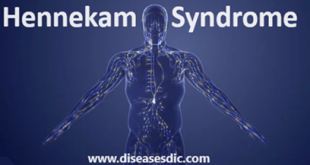

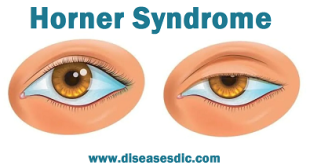

good nice
excellent
good
it really helpful and well educative I love it keep given us easy ways to make us feel great
very helpful
Yes u are right I am victims for 6yrs til now
its a dandy
good
I find this column so helpful for am learning and being updated on the very important medical conditions that we come across in our daily duties.
baking soda and water mix to a past rub all over body tell. it dries and watch them disappear
i hv gt chronic urticaria spontaneous. pls help
Go through treatment and medication section in post for getting primary treatment. Consult skin specialist to get complete treatment for hives.
nice very help full
nice
adding of the medicine name in the article makes it more impressive,if possible do add…..
It’s very advisable, keep it up
but we need medicine for the illness
We updated some medicines in the post please read it out.
We have use cortisone with withdrawal stoping i mean we have stop it step by step
yes I am male nurse I also sufferd in hives that causes food allergy .
pls help my problems and pls tell me the hospital and my skin problem is solve give some medication ipay
diphenhydramine (Benadryl), chlorpheniramine (Chlor-Trimeton), taken in a dose of 4 milligrams. These can be taken up to three times a day, but because these medications can cause drowsiness, they are often taken at bedtime.
consult a dermatologist.
give some medication
diphenhydramine (Benadryl), chlorpheniramine (Chlor-Trimeton), taken in a dose of 4 milligrams. These can be taken up to three times a day, but because these medications can cause drowsiness, they are often taken at bedtime.
am also a victim please help
am also a victim please help me out
Please consult a doctor.
I am Victim of Hives since one month.
Regularly taking Alleges.
still Itching persist one or the part of the body.like limbs Legs joints.Will you plz suggest any other medicine.
some of the antihistamine drugs for hives are as follows.
Oratadine [Claritin]
Fexofenadine [Allegra]
Cetirizine [Zyrtec]
Diphenhydramine [Benadryl]
Hydroxyzine [Vistaril]
Chlorpheniramine [Chlor-Trimeto
I see a doctor, and prescribed me xonadine, but not work last week .And I seen him two days ago he prescribed: hydrocotisone cream and zyncet 10mg. please is it helpful.
Hello! I am suffering from urticaria for about 3-4 years. It generally occurs in summer. And main allergens, I think, are various food articles and also sunlight and heat.
I went to various doctors and they only prescribe me some medicines which causes some temporary relief. Can you please tell me any natural and permanent method to eradicate this disease.
Vitamin C: It gives strength to the body’s immunity system.
Stinging nettle: It is not very popular that stinging nettle is known to be a way to cure hives. Place an extract of stinging nettle on the area which is affected by hives.
Apple cider vinegar: To be precise, apple cider vinegar should be combined with cornstarch to make a pasty mixture and then put it on the surface where the skin is influenced by hives. Do it after bathing to make the most of its effectiveness.
Aloe Vera: The gel from Aloe Vera is the main ingredient to reduce the itchiness. Don’t afraid to place it directly on the skin. A period of about 30 minutes or so is recommended. After that, clean with water and see how magical and soothing it is.
Hey RR play, first of all, vitamin C containing food articles cause more allergy so I think I should totally avoid it and the other three are also some of the remedies which can only suppress the urticaria but I want to eradicate this disease.
l learn from it
Your article is very educational. I’ve urticaria and im pregnant, what medication can i take that will not disturb my baby?
please consult a doctor.
Does it mean that all the drugs mentioned are contraindicated for pregnancy?
please consult a doctor before taking the drugs which are mentioned in the post.
Thank you so much for the info. This decease is stressful. Will try the medication.
Hi so what is the treatment please how it will go what I have to do to get releife please thank u….
KIndly read in the post.
I have been a victim of Urticaria for 8years ,my doctor advised me to use hydrocortisone ointment but it has never work for me,mostly I experience this after taking bath ,kindly advice further
Hydrocortisone is not particularly useful for the treatment of hives (urticaria) since they are caused by histamines rather than by skin inflammation. Hence it is recommended you to consult a good doctor to get rid of this problem.
Please what’s the difference between urticaria and lachin planus
Urticaria, also known as hives, is an outbreak of swollen, pale red bumps or plaques (wheals) on the skin that appear suddenly — either as a result of the body’s reaction to certain allergens or for unknown reasons.
Lichen planus is a chronic recurrent inflammatory disorder of the skin and mucous membranes. It is characterized by small, flat-topped, polygonal bumps that may coalesce into rough, scaly plaques on the skin.